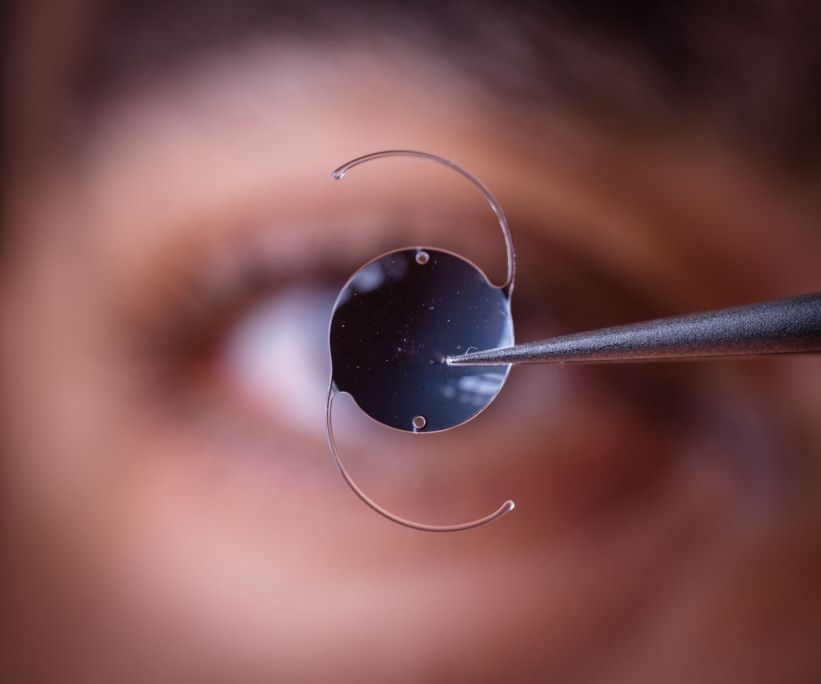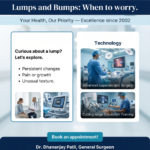In today’s world, the reliance on glasses and contact lenses can be inconvenient and limiting. If you’re searching for a permanent solution to vision problems like nearsightedness, farsightedness, or astigmatism, Implantable Collamer Lens (ICL) surgery might be the game-changer you need. This advanced, safe, and effective procedure can transform the way you see the world—literally. Let’s dive into the details of ICL surgery, its benefits, process, and what makes it a revolutionary option for vision correction.
What is ICL Surgery?
ICL surgery is a minimally invasive procedure designed to correct refractive errors and provide sharp, clear vision. Unlike LASIK, which reshapes the cornea, ICL involves implanting a custom-made lens inside your eye, working in harmony with your natural lens. This lens, made from a biocompatible material called Collamer, is soft, flexible, and designed to stay in your eye permanently. However, it can be removed or replaced if needed.
ICL is an excellent option for individuals who are not suitable candidates for LASIK due to thin corneas, dry eyes, or high prescriptions. It’s a versatile and reversible solution that has helped millions achieve glasses-free vision.
Who Can Benefit from ICL Surgery?
ICL surgery is ideal for individuals who:
- Are between the ages of 21 and 45.
- Have stable vision for at least a year.
- Suffer from moderate to severe nearsightedness (myopia), farsightedness (hyperopia), or astigmatism.
- Are not suitable for LASIK due to thin corneas, dry eyes, or other medical conditions.
- Want a reversible and long-term solution for vision correction.
Advantages of ICL Surgery
ICL surgery offers several unique benefits, making it an attractive option for those seeking vision correction:
- High-Quality Vision: ICL provides sharp, crisp vision with exceptional clarity, even in low-light conditions.
- Quick Recovery: The procedure is quick, and most patients experience significant improvement in vision within 24 hours.
- Reversibility: The implanted lens can be removed or replaced, offering peace of mind for those concerned about permanent changes.
- Minimal Dry Eye Risk: Unlike LASIK, ICL does not affect the corneal nerves, reducing the risk of dry eye syndrome.
- No Corneal Tissue Removal: Since the cornea remains untouched, ICL is a safe alternative for individuals with thin corneas.
- UV Protection: The Collamer lens material has built-in UV protection, safeguarding your eyes from harmful rays.
The ICL Surgery Process
Here’s what you can expect during the ICL surgery journey:
1. Initial Consultation:
Your eye specialist will perform a comprehensive eye exam to determine your suitability for ICL surgery. This includes measuring your prescription, corneal thickness, and overall eye health.
2. Pre-Surgery Preparation:
Before the surgery, your doctor may prescribe eye drops to prepare your eyes. You may also need to avoid wearing contact lenses for a few weeks.
3. The Procedure:
- The surgery is performed under local anesthesia and typically takes about 20-30 minutes per eye.
- A small incision is made in the cornea.
- The ICL is folded and inserted through the incision, then unfolded and positioned behind the iris and in front of the natural lens.
4. Post-Surgery Care:
After the procedure, you’ll be given eye drops to prevent infection and inflammation. Most patients resume normal activities within a few days, but it’s essential to follow your doctor’s guidelines for optimal recovery.
Potential Risks and Considerations
While ICL surgery is safe and effective, it’s important to be aware of potential risks and complications, which include:
- Infection: As with any surgical procedure, there’s a small risk of infection.
- Glare or Halos: Some patients may experience glare or halos around lights, especially at night.
- Increased Intraocular Pressure: Rarely, fluid buildup can lead to increased pressure in the eye, requiring prompt medical attention.
- Cataract Development: The implanted lens can potentially increase the risk of early cataract formation.
- Lens Displacement: Although uncommon, the ICL may shift and require repositioning.
Choosing an experienced surgeon significantly reduces these risks and ensures the best possible outcome.
Comparing ICL Surgery to LASIK
Both ICL and LASIK are popular options for vision correction, but they cater to different needs:
| Feature | ICL Surgery | LASIK |
|---|---|---|
| Corneal Impact | No corneal tissue removal | Reshapes the cornea |
| Dry Eye Risk | Minimal | Higher |
| Reversibility | Reversible | Permanent |
| Suitability | Ideal for thin corneas, high myopia | Suitable for low to moderate myopia |
| UV Protection | Built-in | None |
Cost of ICL Surgery
The cost of ICL surgery varies depending on your location, surgeon’s expertise, and the type of lens used. On average, it ranges from $3,000 to $5,000 per eye. While it’s a significant investment, many patients find it worth the cost for the freedom from glasses and contact lenses.
Testimonials: Real-Life Transformations
Many patients who undergo ICL surgery describe it as life-changing. Here are some testimonials:
- Emily, 29: “I was tired of dealing with thick glasses and uncomfortable contacts. ICL surgery gave me the freedom to enjoy outdoor activities without worrying about my vision. It’s the best decision I’ve ever made!”
- Mark, 35: “As someone with severe nearsightedness, LASIK wasn’t an option for me. ICL surgery was a perfect alternative. My vision is now better than 20/20, and I couldn’t be happier.”
Is ICL Surgery Right for You?
ICL surgery is a cutting-edge solution for those seeking freedom from glasses and contact lenses. If you’re considering this transformative procedure, consult an experienced ophthalmologist to determine your eligibility and discuss your expectations.
With ICL surgery, you can look forward to a future of clear, hassle-free vision and a life unburdened by the limitations of corrective eyewear.
For Consultation Contact us on 9168690448
Website – www.chetnahospital.co.in
Address – Chetna Hospital, Sambhajinagar, MIDC, G Block, Near Rotary Club, Chinchwad 411019
.
.
.
#hospital#pune#pcmc#chinchwad#medical#medicalservices#dryeyetreatment#dryeyerelief#dryeyedisease#dryeyetherapy#catract#catractsurgery#catracteyesurgery#catracteyeoperation#eyedoctor#eye#glaucoma#conjunctivitis#ophthalmologist#eyediseases#eyepain#pinkeye#hazeleyes#myopia#eyeinfection#amblyopia#dryeyesyndrome#eyeproblems#motibindu#motibinduoperation













